No amount of hard work is going to pull people up if they don’t get paid for working hard
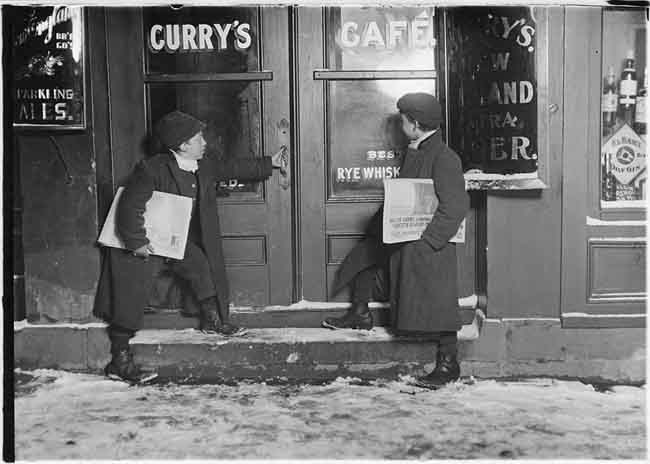
One of the things corporate special interest group marketing takes advantage of is differences between the generations and their understanding of the economy.
You’ve seen the memes. The most famous example was Mitt Romney characterizing 47 percent of Americans as lazy.
Typically, I see posts like this on the Internet:
Implicit in my friend’s post is the idea that anyone can pull themselves up if they just work hard.
The problem is that things today are very different. There are no more paper boys. Or pensions. Hell, newspapers may not even be around much longer.
What my Baby Boomer friend experienced was very different than today’s reality. Because of these life experiences, it’s often difficult for Baby Boomers to understand just how different today’s economy is from the economy of the 1950s and 1960s.
How can you help people like this (especially in your own family) understand the realities of today’s economy?
A good start is to talk about how you both value hard work, and how you’re both the same.
He’s basically trying to say he’s somehow “better” than me and that he succeeded because he worked hard, so if I did the exact same thing I’d have the same result. NOTE: I’m agreeing with him that hard work is great. I can get away with swearing because I’m calling him out on his self-righteous moralizing.
We’re the same. I’m with him 100 percent on hard work.
What’s changed is the economy.
The place to start is this place of commonality. Don’t let people get away with saying that somehow they “worked harder,” or somehow they’re better than you. This is a load of crap and deserves to be treated as such.
We’re all human. I’m pretty sure Mr. Attempting-To-Be-Self-Righteous didn’t discover relativity or walk on the moon (and even if he did, he’s still human). So when people try to pull this moralizing bullshit and claim they’re better, don’t let them get away with it. Too often we let this nonsense stand.
Usually, this is all you have to do. In this case, it was all I had to do. He got really quiet and more importantly, others in the conservative forum sided with me.
NOTE: I didn’t need any facts. All I needed to do was put myself on an equal moral footing, talk about how hard work was important, and illustrate that the problem is that the economy has changed.
If you need some proof, here are a few handy samples.
At right is a great comparison of how baby boomers were able to pay for college. First, it cost less. And second, they made more.
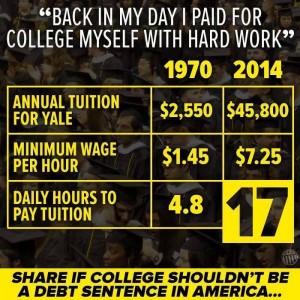 In other words, it was much easier.
In other words, it was much easier.
If you have to put in 17 hours a day to put yourself through college, you’re pretty much not going to be able to afford college.
This is also why so many kids today are racking up huge debts in terms of student loans.
When I went to college, I was able to pay for most of it through a combination of 1) choosing a state school, 2) scholarships, 3) co-oping and working to help pay costs, and 4) help from my parents.
This isn’t the same reality today. And it’s definitely much different than my Baby Boomer friend who paid for his own Catholic tuition high school. The average Catholic high school tuition today is $9,622.
Bryan Williams had a great piece in The New Republic this week titled “Why Baby Boomers Don’t Get Bernie Sanders.” Similarly, he believes they experienced a completely different economy. He argues that the Baby Boomer generation had a middle class of professionals, and that this professional class is being commoditized (basically paid less for more work).
One of my favorite graphs simply demonstrates what’s happened to pay as productivity has increased.
Quite simply, beginning in about 1970, wages stopped rising with increases in productivity. Up to that point, when productivity increased, American workers were getting paid for it.
In plain English, what this means is that today people work more and get paid less. Even the so-called professional classes.
Examples
When you’ve lived a different reality though, graphs and charts may not mean much. This is why so many Baby Boomers “buy” it when politicians talk about our lazy kids.
In reality, every generation tends to think the generations that come afterward have it easy. The Baby Boomers were characterized by the generation before them as the “Me” generation.
Examples can help people understand how things have changed. Especially if you can get people to talk about how something has change during their lifetime. Ask them about where they worked and talk about how it’s changed.
Since my friend mentioned being a paper boy, I talked about newspapers. Yunno … those things that no one buys anymore?
He was able to make money as a paper boy because the market for delivering information was tremendously inefficient. Information had to be printed and hand delivered. Today, all of this information is available for free without any delivery charges. All the “inefficiency” has been streamlined out of the market to the point where very few people make money in the newspaper business. It’s not just paper boys that are gone. Reporters have been laid off en masse as revenue has shrunk and papers have been downsized. And these jobs have not been replaced with similar-paying jobs on the Internet.
I also talked about pensions.
The party he typically supports also wants to privatize Social Security and education. And, if they had their way, it’s doubtful there would be any GI bill.
Things went quiet on my friend’s end when he couldn’t “sound better.”
More importantly, in a conservative forum, people agreed with me because many people understand that some significant changes have occurred in the economy since the 1970s.
No amount of hard work is going to pull people up if people don’t get paid for working hard. This is the reality we have to change.
Cross posted at Daily Kos.
—
 |
David Akadjian is the author of The Little Book of Revolution: A Distributive Strategy for Democracy. Follow @akadjian |


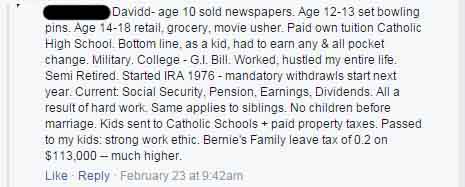
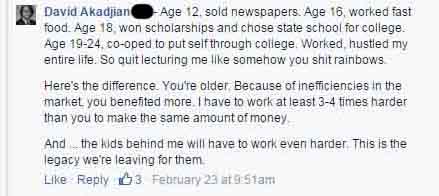
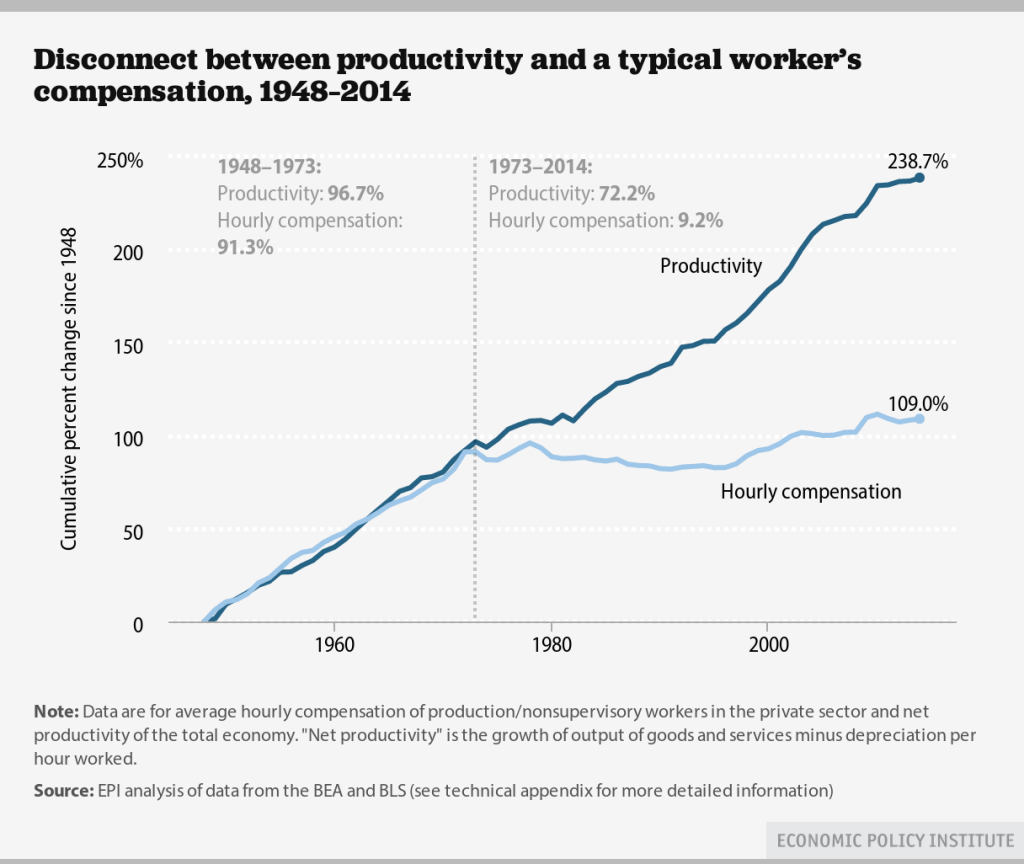










2 Comments